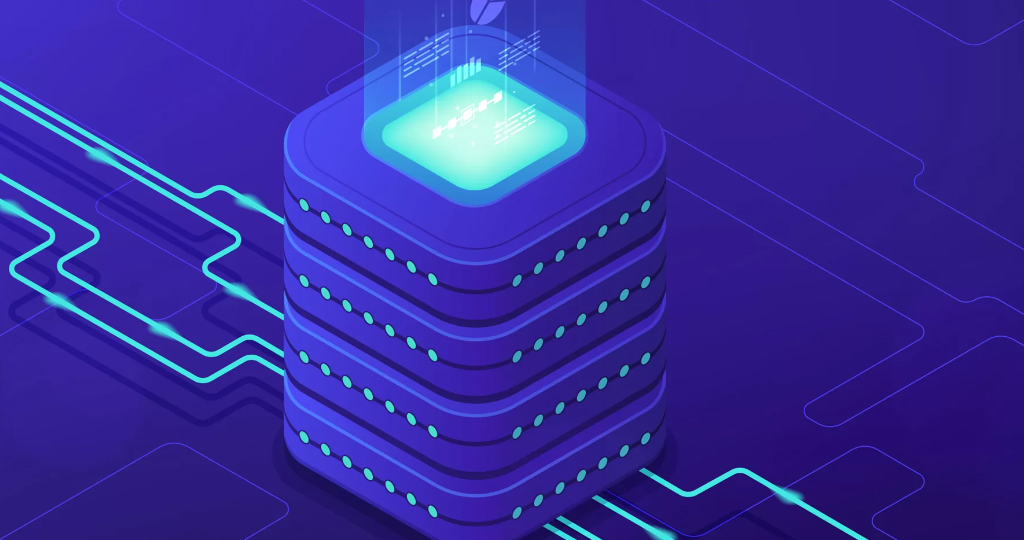Modern online applications require a database for web applications because they offer a systematic method of managing and storing data. Choose an appropriate database if you’re creating a web application for optimum performance and scalability.
Due to their dependability and rich tooling, relational database systems like MySQL and PostgreSQL have traditionally been preferred. MongoDB and Cassandra are two examples of NoSQL databases that offer flexibility when processing data that is not structured.
Cloud-based databases and specialized solutions like Firebase, Elasticsearch, and Redis are also popular. Selecting the right database entails considering different elements to ensure a reliable and effective web application. Here are some of the best databases for web applications.
Suggested Read: Best Examples of Web Apps That You Use Everyday
Which is best Database for web applications In 2023?
1. My SQL
A standard in relational database management systems (RDBMS), MySQL is a commonly employed open-source RDBMS. In addition to being well-known for being reliable and fast, MySQL has a wide range of capabilities.
Its support for SQL queries, transactions, and the ACID (Atomicity, Consistency, Isolation, Durability) attributes ensure data reliability. MySQL enables programmers to handle massive datasets, easily create and administer databases, and accomplish unparalleled speed levels.
It is a dependable solution for driving evolving and data-driven web applications due to its adaptability and adaptability. It makes it one of the best databases for web applications.

2. POSTGRE
Web developers have been increasingly enamored with PostgreSQL, a relational database management system (RDBMS). Its dependable, sophisticated features provide extensive possibilities for managing complicated data processes.
It is appropriate for various scenarios since it handles many data types. In addition to supporting transactions, concurrency control, and referential integrity restrictions, PostgreSQL strongly emphasizes data fidelity.
Due to its flexibility, developers can add new features and functions, increasing its utility. PostgreSQL is a fantastic option for web-based applications because of its active network and outstanding track record for security.
3. MongoDB
MongoDB is a prevalent document-oriented NoSQL database that has grown significantly in popularity among web developers. Due to its adaptability and scalability, it is excellent at fast data management.
MongoDB maintains data in adaptable, JSON-like documents rather than tables and rows, enabling versatile and schema-less information structures. Because data structures may change frequently in agile design, it is the best option for this.
MongoDB also provides horizontal scaling, automatic sharing, and built-in replication capabilities for excellent reliability and efficiency. It is a flexible option for various web applications thanks to its rich query language and ability to cater to geospatial data.
4. Microsoft SQL Server
Microsoft created a popular relational database management system (RDBMS) called SQL Server. SQL Server is a well-liked option for web-based applications because of its extensive feature set, flexibility, and close connection with other products from Microsoft.
It provides excellent speed optimization tools, advanced safety capabilities, and hassle-free handling of transactions. SQL Server is capable of processing a variety of data requirements since it handles a wide range of data types, including spatial and XML data.
It can effectively handle complicated queries and massive datasets thanks to its robust query optimization features. SQL Server is a complete solution for web-based application storage and retrieval needs because it also provides many resources and services for data integration, tracking, and evaluation.
5. Oracle Database
The relational database management system (RDBMS) Oracle Database is strong and packed with features, and it has several benefits for online apps. Organizations worldwide rely on Oracle Database because of its proven history of dependability, adaptability, and privacy.
It offers cutting-edge functions like data compression, segmentation, and simultaneous processing to guarantee outstanding efficiency and effective resource use. Additionally, Oracle Database provides thorough assistance for complicated data processes, such as multi-model data assistance, sophisticated analytics, and geographical data handling.
It offers strong data security measures, including encryption and access controls, to safeguard private information. Oracle Database is an excellent option for web applications thanks to its vast network of tools, documentation, and support from the community.
6. Firebase
Google’s cloud Firebase solution offers a complete collection of resources and services for creating web-based applications. Firebase Realtime Database, which provides a NoSQL, cloud-hosted database platform that allows real-time data synchronization, constitutes one of its essential components.
It is, therefore, perfect for creating cooperative and responsive apps. Additionally, Firebase provides authentication solutions, making user administration and integration with authentication simple.
Developers may easily create, distribute, and analyze their apps using their hosting, cloud capabilities, retention, and analytics features. Firebase is a well-liked option for online applications due to its straightforward setup, seamless expansion, and simple connectivity to additional Google Cloud services.
7. Cassandra
Cassandra is a shared, extremely scalable NoSQL database that excels at managing enormous volumes of data across numerous servers and data centers. It is an open-source platform. Due to its decentralized architecture, Cassandra is appropriate for mission-critical web application databases because it offers excellent availability and tolerance for faults. Developers can find a compromise between efficiency and data security thanks to its configurable consistency.
Cassandra specializes in use cases requiring high write and reads performance thanks to its flexible data structure and ability to cater to horizontal scaling. Cassandra is a well-liked option for managing massive data and high-velocity tasks due to its durability, flexibility, and simplicity of horizontal scaling.
8. Redis
Redis is a popular database, cache, and communication broker that is freely available and stores data structures in memory. Developers use it for fast-speed data processing due to its efficiency and minimal latency.
Redis offers flexibility in information retention and processing by supporting various data types: strings, hashes, lists, sets, and sorted sets. Additionally, it provides sophisticated capabilities, including built-in duplication for redundant data storage, geospatial indexing, and pub/sub networking.
Developers commonly use it for handling sessions, real-time analytics, caching data, and as the primary database for small-scale applications because of its straightforwardness and simplicity of usage. Redis is an effective tool for enhancing the efficiency of web applications because of its in-memory architecture, which enables blazing-fast data retrieval.

9. Elastic Search
Elasticsearch is a shared, full-text search and analysis engine made to handle massive amounts of data and offer web applications blazing-fast search performance. It performs well in situations when quick search and evaluation are essential. An effective web application with database can give optimum performance.
Elasticsearch, which is based on the Apache Lucene library, has powerful indexing, querying, sorting, and support features. It also offers significant advantages like decentralized search, horizontal scalability, and automatic sharing for effectively managing massive data.
Aggregations, data visualization, and log analysis can all be done by developers thanks to Elasticsearch’s analytics features. Due to its adaptability and scalability, Elasticsearch is frequently used to power search capabilities in e-commerce sites, systems for managing content, and log management apps.
10. SQLite
SQLite is a compact, file-based relational database system commonly employed in web and mobile apps. It distinguishes out for being straightforward, effective, and requiring no configuration.
Unlike client-server databases, SQLite is a library attached to an app, making it very portable. Although SQLite has a tiny file size, it supports common SQL queries and has ACID (Atomicity, Consistency, Isolation, Durability) features that guarantee data security.
It is appropriate for modest to medium-sized apps or embedded devices that need on-site data handling and retention. It makes it one of the best databases for web applications.
SQLite makes storage and portability easier by storing the entire database in just one file. It is a preferred option among programmers because it handles a variety of environments and programming languages.
The circumstances where simplicity, dependability, and convenience of integration are prioritized are where SQLite shines, despite not being built for high concurrency or intensive write operations. Developers commonly use it in desktop programs, browser add-ons, and mobile apps.
In A Nutshell
A web application database selection significantly affects its functionality, scalability, and data handling features. There are several things to consider before choosing between an RDBMS and a NoSQL database.
Relational databases provide an organized method, guaranteeing consistent data and offering a wide range of tool compatibility. On the other hand, the versatility and capacity of NoSQL databases make them appropriate for managing unorganized and frequently changing data.
Managed services, easy scaling, and seamless connection with other cloud infrastructure elements are all advantages of cloud-based databases. This makes selecting the best database for web applications challenging.
Specialized databases can handle specific requirements such as search capabilities, caching, or real-time data synchronization. Programmers may arrive at a smart decision by considering different aspects, including data structure, scalability demands, safety, and the particular requirements of the web app.
Due to careful research and analysis, a database with an effective architecture will better handle the web application specification. Performance, scalability, and data management are all guaranteed if you choose an effective database.



